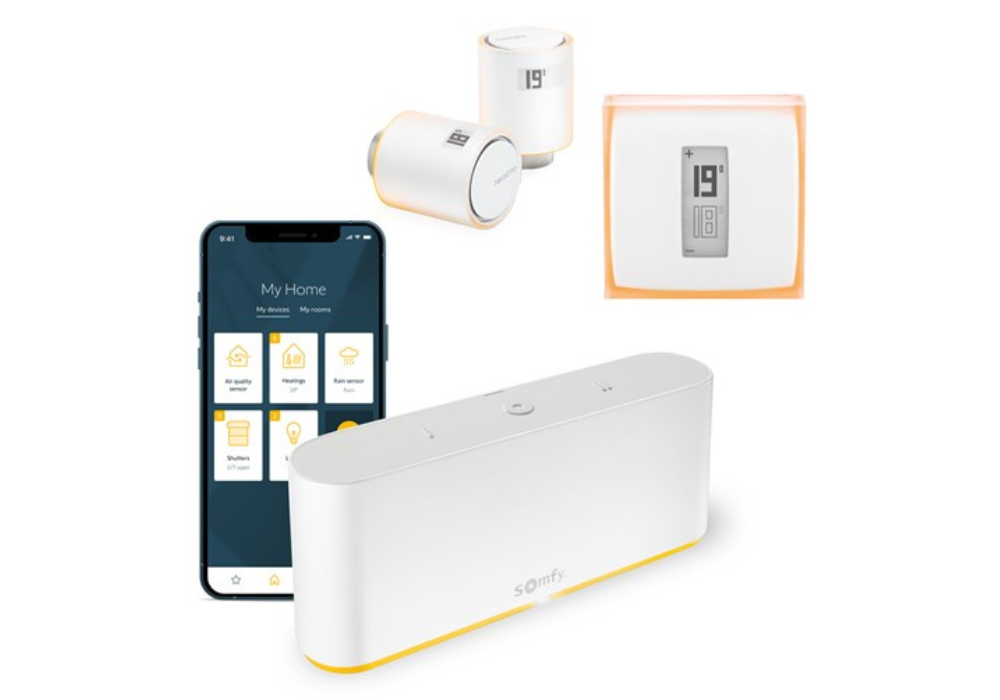
Netatmos smarte termostat og radiatortermostat er nå kompatible med Somfy TaHoma Switch
CCTV cameras are a highly effective way to increase your security. This footage protects your home from crime and provides images of all the goings-on at the property. However, the use of these devices is controlled by strict data protection systems. You’ll need to ensure you’ve got the correct information if you’ve recently installed them.

CCTV laws: what regulations apply to the use of CCTV surveillance cameras?
CCTV cameras are a highly effective way to increase your security. This footage protects your home from crime and provides images of all the goings-on at the property. However, the use of these devices is controlled by strict data protection systems. You’ll need to ensure you’ve got the correct information if you’ve recently installed them.
How does UK law define and regulate CCTV surveillance systems?
According to the UK government website, a CCTV surveillance system includes the CCTV cameras themselves, footage storage devices, recorded images and any other devices that are linked to a CCTV security system.
The main motivation for installing CCTV is, of course, to increase the security levels on your own property.
However, if you use cameras in and around your home, you need to know if they’re recording any footage of public roads, spaces that residents share, or any images of other peoples’ property.
If this is the case, the EU’s recent General Data Protection Regulation (GDPR) – as well as the UK’s Data Protection Act (DPA) – will apply to your CCTV recordings and the way you use the images the system has recorded.
As the owner and installer of the security cameras, you are responsible for legally managing their footage and any personal information recorded by these systems.
In the UK, the Information Commissioner’s Office (ICO) outlines guidelines for the use of private CCTV. Visit the ICO website for more information about compliance with personal data laws.
It’s not just home CCTV that’s subject to data protection law: the police and other organisations and authorities also have to handle their footage and systems according to the established rules.
Their CCTV may well deliberately film public spaces in order to increase security. This means the general public’s privacy and personal data are unavoidably included in the recording.
What are your rights in relation to private CCTV surveillance cameras?
You might become aware that a private home’s CCTV system has recorded footage of you.
In fact, data protection law actually states that homeowners must let people know that they have security cameras capturing images on their property.
If you know that the owners of a property have CCTV images of you, you can request to view any footage where you appear.
You can also request that they erase any personal information they have about you and ask that they do not film you in future.
Of course, altering a CCTV set-up can be complex. For this reason, the homeowner may not always be able to fully meet your requests regarding their CCTV footage.
If you’re installing a CCTV system, you’ll need to ensure that you respond appropriately to these requests.
Data protection regulations may also apply to home video doorbell systems. If you’ve got a smart doorbell installed as part of your security set-up, make sure you’ve got all the information you need to handle this footage legally. If you’re considering increasing your home security, why not try a Netatmo Smart Video Doorbell?
How to install a home CCTV system in line with data protection regulations
As a homeowner, you’re perfectly entitled to install CCTV to increase security.
As we’ve seen, depending on what it records, you’ll need to comply with the laws designed to protect personal data.
Below, you’ll find several points to bear in mind when installing a legal and effective CCTV system:
If the cameras unavoidably capture footage of public spaces, have you let the relevant authorities know?
These devices can be complex to set up, aside from the data protection rules involved. To simplify your home security, it might be an idea to consider other systems, before you go ahead with a CCTV camera installation.
Improved lighting around the property could help to deter crime, as well as security devices such as alarms and sensors that monitor when doors and windows are opened.
Check out the Netatmo home security range to browse these options, and more!
At Netatmo, we take personal data protection seriously. If you’re considering installing home CCTV, take a look at our Smart Indoor and Outdoor Cameras. This range has a secure storage card built in, so only you will be able to access the footage recorded on your property.

Innbrudd
Why should you choose wireless surveillance cameras?

Innbrudd
Real-time security systems: how can you view your home in real time?

Innbrudd
Outdoor security cameras: how should you go about choosing the right outdoor security cameras for your home?

Innbrudd
Live security cameras: why are these security cameras worth installing in your home?